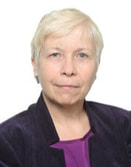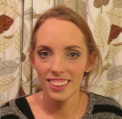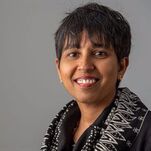The GLOW Committee
The steering committee founded GLOW in 2011 and is made up of senior academics committed to improving maternal and child health, along with a trainee representative. Together they decide the direction of GLOW and facilitate the organising of the GLOW conferences.

Tina Lavender (Liverpool School of Tropical Medicine) Dame Tina is Professor of Maternal and Newborn Health and Director of a World Health Organisation Collaborating Centre. As a registered midwife , Dame Tina has spent much of her career developing midwifery research capacity globally and working with the Lugina Africa Midwives Research Network to improve evidence-based practices. She is a Visiting Professor at the University of Nairobi and leads a programme of research focusing on improving maternity and newborn care. Dame Tina is Director of the NIHR Global Health Research Group on the Prevention and Management of Stillbirth, working in Sub-Saharan Africa. She is Associate Editor of the African Journal of Midwifery and Women's Health. Dame Tina has played an active role in promoting improved educational midwifery standards, through a number of innovative educational projects, as well as through formal academic roles. She also acts as a regular Advisor to the World Health Organization, particularly in relation to research priority setting, guideline development and as a reviewer of educational materials. In 2016 she was nominated as one BBC's 100 most inspirational women in the World. In 2018 she was made a Senior NIHR Investigator.

Wendy Graham (London School of Hygiene & Tropical Medicine) is Professor of Obstetric Epidemiology at the London School of Hygiene and Tropical Medicine. Trained at Sheffield and Oxford universities, her career over the last thirty years has included senior roles in academia, as a technical adviser to government and UN agencies, and as an advocate for maternal and perinatal health improvement in low-and-middle-income countries. Wendy’s initial research focused on the prevention and measurement of maternal mortality, but in the last eight years, her attention has shifted to the reduction of healthcare-associated infections among mothers and newborns delivering in maternity units, with a particular emphasis on environmental hygiene, provider practices, and the prevention of antimicrobial resistance. Her research portfolio has always involved a mixture of direct field activities on measurement and interventions (particularly in maternity care settings); research synthesis and communication; and engagement with policy stakeholders at national and international levels. The current focus of Wendy’s work falls broadly into the field of quality improvement, with a particular target of HCAIs and the role of WASH (water, sanitation and hygiene), including antimicrobial resistance. In 2012, Wendy was instrumental in establishing an evidence-based charitable trust – The Soapbox Collaborative – which conducted research and action to prevent HCAIs at birth in maternity units in low-income countries, and completed its mission in June 2019. The majority of the research work of Soapbox continues at the LSHTM, with projects currently or upcoming in Bangladesh, Cambodia, The Gambia, Nigeria, Tanzania, Uganda, and with the International Committee of the Red Cross in nine countries with conflicted-affected areas.

Abi Merriel (University of Birmingham) is a Research Fellow in Global Maternal Health at the University of Birmingham. She trained at Bristol University and is currently an Obstetrics and Gynaecology Trainee. Her interests lie around quality improvement in obstetric care and she is now undertaking a PhD in this area working in collaboration with colleagues in Malawi.
|

Andrew Weeks (University of Liverpool) is a Professor of International Maternal Health and director of the Sanyu Research Unit. He trained in Sheffield and Leeds, and spent 2 years as a visiting lecturer at Makerere University in Uganda before going to Liverpool in 2003. He was awarded a personal chair in 2011, and is honorary consultant obstetrician at Liverpool Women’s Hospital. His primary interest is in the translation of maternity care from high to low resource settings. He has a particular interest in misoprostol (he runs the www.misoprostol.org website), postpartum haemorrhage and the management of labour. He is currently running the INFORM study in India comparing the Foley catheter and misoprostol for induction of labour (funded by the MRC/Wellcome/DFID), the BabyGel study in Uganda (an MRC funded cluster RCT assessing the benefits of providing alcoholic hand gel to postnatal mothers in homes without running water), and the PPH Shelf study (an NIHR funded project developing a new treatment for PPH in which an intravaginal device diagnoses the source of postpartum bleeding as well as providing a platform against which to compress the uterus).

Joy Lawn (London School Hygiene and Tropical Medicine) is a Professor of Maternal Reproductive and Child Health Epidemiology, London School Hygiene and Tropical Medicine and Director of the MARCH Centre. Joy is an African-born paediatrician and perinatal epidemiologist with over 20 years’ experience of maternal, newborn and child health. She has over 20 years’ experience especially in Africa, including four years as a lecturer and neonatalogist in Ghana. She shifted to public health and global estimation working at the WHO Collaborating Center, CDC Atlanta, USA (1998-2001), and then at the Institute of Child Health, London, UK (2001-2004), and also completing a Masters of Public Health at Emory University, Atlanta and a PhD in perinatal epidemiology at University College London, UK.

Kate Lightly (University of Liverpool) is a PhD student and MOLI study trial manager at the University of Liverpool. Kate, a trainee obstetrician, leads the MOLI study which is looking at comparing two interventions (misoprostol and oxytocin) in the induction of labour in high risk women in India. She will also examine the effect of introducing enhanced fetal monitoring methods into a low resource setting. Recruitment will take place in three public hospitals in Nagpur, Central India.

Teesta Dey (University of Liverpool) is a PhD Student at the University of Liverpool. Teesta joined the Sanyu team as an enthusiastic trainee obstetrician with a keen interest in global maternal health. Her research focus is the development of innovative patient-centred tools to optimise the provision of immediate post-natal care in low resource settings. She is undertaking a PhD, setting up two research studies in one of the biggest and busiest public women’s hospitals in Kampala, Uganda.
|

Shakila Thangaratinam (University of Birmingham) is Professor of Maternal and Perinatal Health at University of Birmingham. As Consultant Obstetrician she is involved in the care of high-risk mothers at Birmingham Women's and Children's NHS Foundation Trust. Shakila has established a strong portfolio of research in maternal and perinatal health. Her work focuses on prediction, prevention and treatment of complications in mothers with pre-eclampsia, epilepsy, diabetes, and obesity. Her publications include papers in high-impact journals such as the Lancet and the BMJ, and she has accrued research income of £9 million. She leads the International Weight Management in Pregnancy (i-WIP) collaborative group (40 researchers, 16 countries), with the largest live repository of individual data of over 30,000 participants (BMJ 2017). The findings of this work informed the UK Chief Medical Officers’ recommendations on physical activity in pregnancy.
She leads the prediction of pre-eclampsia IPPIC (International Prediction of Complications in Pregnancy) collaborative network (73 collaborators, 21 countries), one of the largest global repositories of standardised Individual Participant Data (IPD) of over five million pregnancies. She has published in first or last author position in Lancet (2019, 2015, 2012), BMJ (2017, 2016, 2012, 2011), Lancet Global Health (2017), HTA monographs (2018, 2017, 2017, 2012). Shakila was awarded an NIHR Senior Investigator Award in March 2021 and is now an NIHR Senior Investigator. Shakila has launched a project with the World Health Organization (WHO) offering insight into COVID-19's global effects on pregnancy. The PregCOV-19 project, led by the WHO Collaborating Centre for Global Women’s Health at the University of Birmingham, aims to evaluate the rapidly emerging evidence on maternal and offspring outcomes and risks in women with suspected or confirmed COVID-19. Shakila is also taking part in online workshops aimed at improving the care of pregnant women during the current COVID-19 pandemic, particularly in low- and middle-countries with international women’s health charity Elly. |

Julia Sanders (Cardiff University) is Professor of Clinical Nursing & Midwifery at Cardiff University, Registered Midwife and Nurse, a researcher and professional leader. She holds a joint post between Cardiff University and Cardiff & Vale University Health Board. This provides exciting opportunities to lead on a programme Midwifery Research in the School of Healthcare Sciences whilst maintaining strong clinical links and leading the development of nurse and midwifery led research within the NHS.
Julia is the Chief Investigator for the NIHR HTA funded POOL study. This UK based multicentre study will run from 2018 to 2021 and will provide robust evidence about the safety of waterbirth for mothers and babies. Her methodological expertise centers upon randomised trials and the use of routine data in research. Julia holds national roles including being the Wales NIHR Specialty lead for Reproductive Health and Childbirth. She is a member of the Oxford University’s National Perinatal Epidemiology Unit, Clinical Trials Advisory Group, and a member of the WHO Collaborating Centre for Midwifery Development Steering Committee, based at Cardiff University. Julia’s research interests focus on maternity care and early years interventions. She was the Senior Clinical Research Associate on Building Blocks, the £5m Department of Health funded evaluation of the Family Nurse Partnership programme in England. This work is ongoing currently evaluating the medium term maternal and child outcomes of the programme. Within her role of NIHR lead for Reproductive Health and Childbirth in Wales she leads a speciality research interest group, open to all professional groups. The primary aim of the group is to develop and maximise recruitment into NIHR portfolio adopted studies across Wales. |
